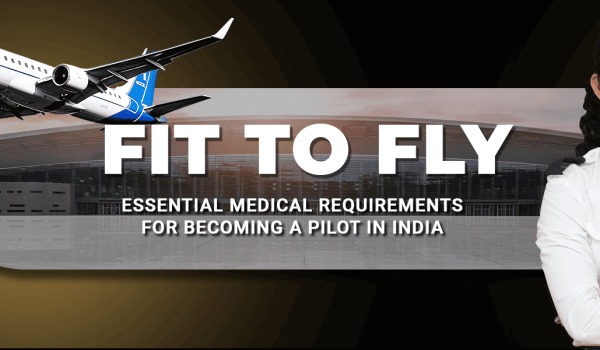In response to a surge in mid-air medical emergencies and growing concerns over passenger safety, India’s Directorate General of Civil Aviation (DGCA) has issued fresh guidelines to airlines regarding medical fitness assessments for passengers. The move comes after multiple incidents involving passengers with undisclosed health conditions, prompting the aviation regulator to revisit protocols around the issuance and verification of Fit-to-Fly certificates.
Key Highlights from the DGCA Advisory:
- Airlines must now verify medical certificates for passengers with recent surgeries or chronic conditions
- Fit-to-Fly letters must specify the basis of medical clearance, not just a blanket approval
- DGCA urges doctors to avoid certifying fitness without detailed medical context
- Airlines retain the right to deny boarding if health risks are deemed significant
Revised Protocols for Medical Clearance:
- Certificate Requirements:
- Passengers with recent surgeries, cardiac conditions, respiratory illnesses, or psychiatric disorders must present a Fit-to-Fly certificate
- The certificate must include clinical findings, treatment history, and physician’s rationale for clearance
- Generic statements like “fit to fly” are discouraged unless supported by medical documentation
- Airline Discretion and Safety Measures:
- Airline medical advisory teams will assess certificates before boarding
- Captains retain final authority to deny boarding if passenger health poses a risk
- In-flight oxygen and medical assistance must be pre-arranged for high-risk passengers
- Passenger Responsibilities:
- Travelers must disclose relevant health conditions during booking
- Failure to do so may result in denied boarding or mid-air complications
- Passengers are advised to consult their physicians well in advance of travel
Common Conditions Requiring Clearance:
- Recent heart attack or stroke
- Post-operative recovery (especially abdominal, orthopedic, or neurological surgeries)
- Uncontrolled hypertension or diabetes
- Respiratory conditions like COPD or asthma
- Psychiatric illnesses requiring medication or supervision
- Pregnancy beyond 36 weeks or multiple pregnancies beyond 32 weeks
Implications for Airlines and Travelers:
- Airlines must train staff to identify red flags during check-in and boarding
- Medical advisory services will be expanded to handle increased certificate verification
- Travelers may face longer check-in times and additional documentation requirements
- The move is expected to reduce emergency landings and improve in-flight safety
Expert Commentary and Industry Reaction:
Medical professionals have welcomed the DGCA’s decision, citing the need for greater accountability in air travel.
- Aviation medicine experts emphasize that cabin pressure, altitude, and immobility can exacerbate underlying conditions
- Airlines are working with hospitals to streamline certificate formats and verification protocols
- Passenger rights groups urge transparency and consistency in enforcement to avoid discrimination
Conclusion:
The DGCA’s updated Fit-to-Fly guidelines mark a pivotal shift in how India’s aviation sector approaches passenger health. By placing greater emphasis on medical documentation and airline discretion, the regulator aims to strike a balance between accessibility and safety. As air travel becomes more inclusive, ensuring that passengers are truly fit for flying is no longer just a formality—it’s a shared responsibility between doctors, airlines, and travelers.
Sources: DGCA Medical Advisory, Fit for Travel NHS Guidelines, AFCAT Medical Standards

